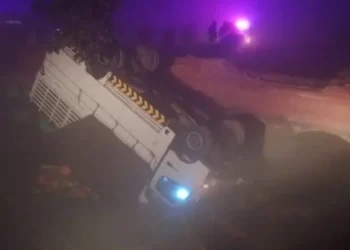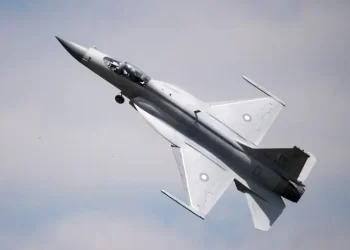Daily life has become “apocalyptic” in parts of southern Gaza since Israel moved into the city of Rafah, though the situation in the north is improving, the UN’s food agency said on Friday.
“The exodus that we’ve seen in the past 20 days or so out of Rafah has been an awesome and horrific experience for many, many people,” Matthew Hollingworth, the World Food Programme (WFP) director for the Palestinian territories, said.
They have fled the fighting to areas where there was not enough water, healthcare or fuel, where food was limited, telecommunications had stopped and there was not enough space to dig pit latrines, Hollingworth told an online briefing.
The public health situation was “beyond crisis levels,” he said, adding: “The sounds and smells of everyday life are horrific and apocalyptic.” People “sleep to the sounds of war… and they wake to the same sounds,” he said. The WFP was able to provide “ever decreasing amounts of assistance,” with all of its bakeries in Rafah closed due to a lack of fuel and supplies, he said.
‘ROADMAP:’ US President Joe Biden said on Friday that Israel had offered a new roadmap towards a permanent peace in Gaza, urging Hamas to accept the surprise deal as it was “time for this war to end.” In his first major address outlining a solution to the eight-month conflict, Biden said the proposal started with a six-week phase that would see Israeli forces withdraw from all populated areas of Gaza. 
“It’s time for this war to end, for the day after to begin,” Biden said in a televised address from the White House, adding that “we can’t lose this moment” to seize the chance for peace. “Israel has offered a comprehensive new proposal. It’s a roadmap to an enduring ceasefire and the release of all hostages,” he said.
Israeli forces have ended operations in north Gaza’s Jabalia area after days of intense fighting and over 200 airstrikes, while probing further into Rafah in south Gaza.
In a statement on more than two weeks of fierce fighting in Jabalia, the Israeli military said troops had completed their operation and withdrawn to prepare for other operations in Gaza.
From May 7 — when Israeli tanks and troops entered Rafah’s east — to May 20, “not a single WFP truck crossed from the southern corridors from Egypt,” Hollingworth said.
The WFP also lost access to its main warehouse in the south of the Gaza Strip because it was in an evacuation zone, with 2,700 tonnes of food either looted or destroyed in fighting.
‘STEP CHANGE’
In the north of the Palestinian territory, by contrast, where UN agencies warned of imminent famine in March, Hollingworth said the situation was improving.
With the opening of crossings, around 12,000 tonnes of inter-agency assistance, mostly food, had been delivered since May 1. “There has been a step change in terms of availability of food,” he said, though problems of healthcare, clean water supply and sewage remained.
The humanitarian aid allowed into the Gaza Strip is not getting to civilians in need, the United Nations said on Friday, urging Israel to fulfil its legal obligations. “The aid that is getting in is not getting to the people, and that’s a major problem,” Jens Laerke, spokesman for the UN humanitarian agency OCHA, told a media briefing in Geneva.
Meanwhile, Countries on Friday approved a hard-fought resolution urging WHO action on towering health needs in war-ravaged Gaza.
World Health Organisation (WHO) member states overwhelmingly voted for a text calling for a donor conference towards health needs in the Palestinian territories, and for more reporting on the “catastrophic” situation in Gaza and on Israel’s “wanton destruction of health facilities.”
JORDAN TO HOST AID SUMMIT









